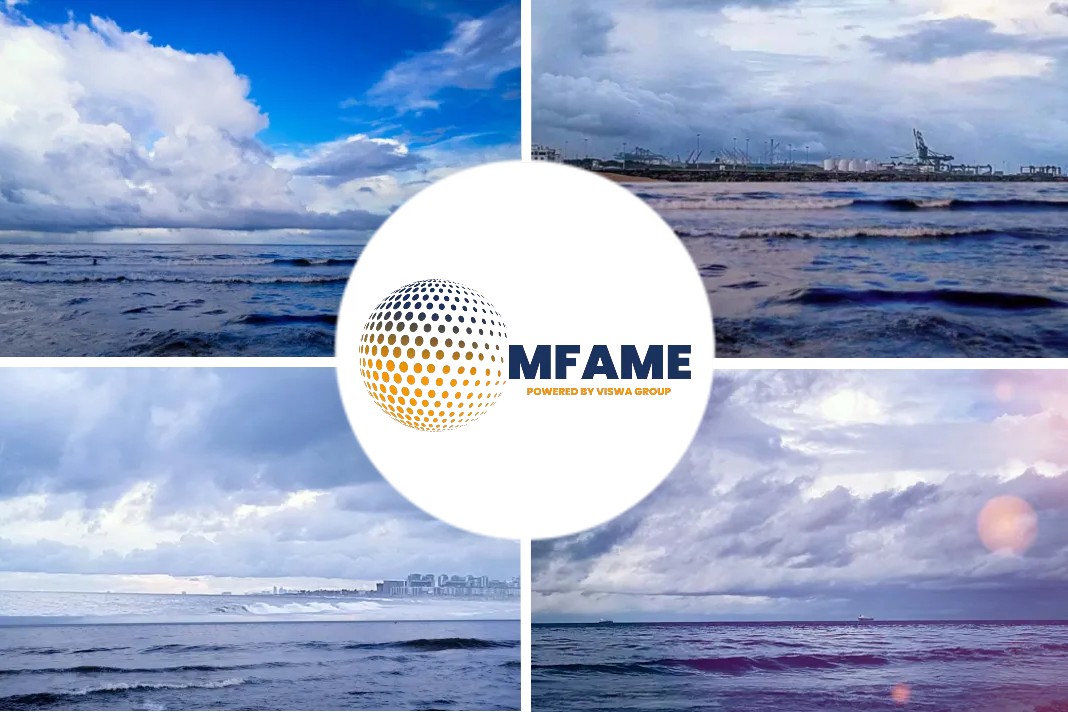The Cyprus Shipping Chamber, representing the vast majority of the island’s maritime industry, has called on the authorities to have a “realistic and pragmatic approach” when enforcing the reduced sulphur emission controls for ships from 1 January, reports Financial Mirror.
Shipping Industry in Support
“There is no doubt that the new regulation will have great environmental and human health benefits. The Cyprus shipping industry has supported the implementation of the regulation,” CSC President Philippos Philis said.
He made the statement on the eve of the enforcement of the new IMO rules which requires the world’s commercial shipping to use fuels with a sulphur content of 0.5% or less, down from the current 3.5%.
“Our members have worked intensively in the past months to assure readiness and compliance with the regulation,” Philis said.
The UN International Maritime Organisation (IMO) Global Sulphur Cap will take effect on 1 January 2020.
Ensuring Safe Compliant Fuel Supply
“We urge bunker fuel suppliers to ensure the supply of safe and compliant fuel and at the same time we call on governments and their port state control authorities to provide consistency and a common-sense approach to enforcement during the initial weeks of implementation, provided shipowners can demonstrate they have done everything in their power to comply.
The global shipping industry is determined to address the environmental impacts of shipping so that we can continue to drive global trade sustainably,” Philis said.
Global Sulphur Cap Benefit
According to the IMO’s ‘global sulphur cap’, the permitted levels of sulphur dioxide (SOx) in ship emissions will be restricted in association with the revised MARPOL Annex VI, hence, the current sulphur limit of 3.5% of any fuel oil used on board ships will be reduced to 0.5% from 1 January, except for ships using ‘equivalent’ compliance mechanisms.
By comparison, the sulphur content of fuels used in trucks or passenger cars must not exceed 0.001%. According to the European Commission, sulphur dioxide emissions from a ship’s combustion cause acid rain and generate fine dust.
This can lead to respiratory and cardiovascular diseases and reduce life expectancy in the EU by up to two years.
Sulphur Emission Control Area
Furthermore, Cyprus and 20 other European countries recently agreed to the possible introduction of a sulphur emission control area in the Mediterranean Sea, with the sulphur cap reduced even further to 0.1%.
More studies will be conducted, and the involved governments will decide if they want to go ahead with it in 2021.
If they agree, the earliest a 0.1% sulphur limit would apply would be March 2021.
LSFO Reliability
Industry observers argue that it is yet to be proven how reliable the quality and supply of low sulphur compliant fuel (LSFO) is.
There is a possibility that the price of high sulphur fuel oil (HSFO) could see a sharp decline in 2020.
The ‘equivalent’ compliance mechanism includes fitting ships with an exhaust gas cleaning system (EGCS) or scrubber that cleans exhaust gasses from the engines.
Ships with scrubber installations are allowed to run on HFSO under the new regulations.
Considering fuel price differentials, shipowners can benefit from the lower prices of HSFO by choosing this method of compliance with the regulations.
However, labour groups are afraid that the forthcoming low-sulphur regulations could result in a spate of criminal convictions, with seafarers facing prosecution if they fail to correctly manage the switchover to low-sulphur fuel from the beginning of the new year.
Scrubber installation
The case for scrubbers largely depends on the ship’s trading pattern, fuel availability and the price differential between the high and low sulphur (compliant) fuel oil.
While this compliance option may be lucrative for large vessels with high fuel consumption, to gain the competitive edge, the shipowner/operator would also need to consider the right technology and utilise reliable suppliers as any breakdown or malfunction of the scrubber could lead to significant fines.
The contractual agreements would also need to consider the downtime for scrubber installation and other aspects
Cost of Compliance
“The cost of regulatory compliance is slowly gaining in importance and will continue to do so. IMO 2020 was recently categorised by one commentator as a ‘perfect storm’ for litigators,” said Richard Greiner, Partner, Shipping & Transport at BDO.
“It is also part of a much larger commitment by the shipping industry to enhancing its green credentials, and in the process becoming a more technologically advanced and environmentally responsible sector. As such, it should be eminently attractive to investors,” he added.
Cyprus in Shipping
Claiming to be the third biggest merchant fleet in the EU, among the top 12 in the world and the leading ship-management hub, the Cyprus shipping cluster contributes about 7% of the national economic output.
The CSC and the Cyprus Union of Shipowners recently merged and represent 240 shipowning, shipmanagement, chartering and shipping related companies based either in Cyprus or abroad.
Together, both employ some 9,000 onshore staff, with a further 55,000 crew onboard ships, of whom 35,000 are on Cypriot-flag vessels.
Did you subscribe to our daily newsletter?
It’s Free! Click here to Subscribe!
Source: Financial Mirror

















